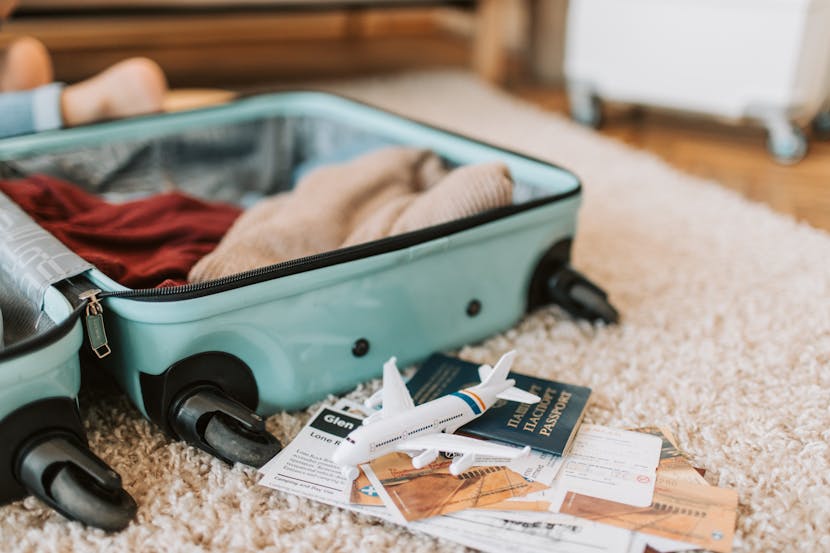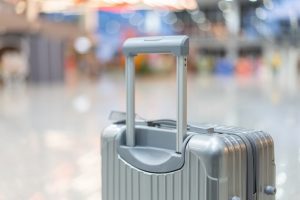Traveling can be a stressful experience, especially when it comes to ensuring that your luggage arrives safely at your destination. To avoid the nightmare of lost or delayed baggage, many travelers use various hacks, such as tying ribbons to their suitcases for easy identification. However, this seemingly harmless trick may actually complicate the process, according to airport staff and baggage handlers.
The Hidden Risks of Tying Ribbons to Luggage
Tying a ribbon or other identifying marker to your luggage is a common practice among travelers aiming to spot their bags quickly on the baggage carousel. However, John, a baggage handler at Dublin Airport, has issued a cautionary note against this age-old trick. He explains that these additional attachments can interfere with the automatic scanning systems used to process baggage.
“If the bag can’t be scanned automatically, it can end up in manual processing, which could mean your bag doesn’t make it to the flight,” John told the media. This manual processing increases the risk of delays or even your luggage being left behind.
Instead, John recommends keeping your luggage free of extra adornments. The more streamlined and straightforward your suitcase is, the less likely it will encounter issues during scanning. This advice extends to removing old stickers from your luggage, as they can confuse the scanning process and cause delays.
Additional Tips for Safe and Efficient Luggage Handling
In addition to avoiding ribbons, John shared several other valuable tips for travelers to ensure their luggage arrives safely and without damage:
- Place Suitcases Wheels Up: To minimize damage, always place your suitcase wheels-up on the conveyor belt. This positioning reduces the chance of the wheels or handle getting caught and damaged during handling.
- Avoid Packing Marzipan: Surprisingly, marzipan, a common confection, can cause security alerts because it has a similar density to certain explosives. Packing marzipan can lead to your bag being pulled for a search, which could result in delays and even being called back from the plane.
- Choose Durable Luggage: Investing in sturdy, high-quality luggage can prevent a lot of headaches. Durable suitcases are less likely to be damaged during handling and are typically designed to be more scan-friendly.
- Label Your Bag Inside and Out: While external markers like ribbons may be discouraged, it’s still important to label your bag. Place a card with your contact information inside your suitcase in case external tags are lost.
- Secure Your Bag with a TSA-Approved Lock: To prevent theft and ensure easy access for security checks, use a TSA-approved lock. These locks can be opened by security officers without damaging your bag.

Understanding Your Rights: Cabin Baggage Claims
Despite all precautions, there are times when luggage gets lost, delayed, or damaged. If this happens, it’s crucial to know your rights and how to claim compensation. According to Citizens Advice, travelers have a legal right to claim compensation from the airline under certain conditions.
- Lost Baggage: If your luggage is lost, you can claim compensation from the airline. The amount you can claim typically depends on the value of the items in your luggage and whether you have declared these items to the airline.
- Delayed Baggage: For delayed baggage, airlines are generally responsible for covering the costs of essential items you need to purchase while waiting for your luggage. This can include clothing, toiletries, and other necessities. Always keep receipts for these items to submit with your claim.
- Damaged Baggage: If your luggage is damaged during handling, the airline is liable to compensate you for repairs or replacements. It’s important to report any damage as soon as you notice it and before leaving the airport if possible.
It’s important to note that you only have the right to claim for a problem with cabin baggage if it’s the airline’s fault. This distinction means that if you cause the issue (such as packing prohibited items), the airline may not be liable.

Filing a Claim: Step-by-Step
- Report the Issue Immediately: If you discover that your luggage is lost, delayed, or damaged, report it to the airline’s customer service desk at the airport as soon as possible. They will typically provide you with a Property Irregularity Report (PIR).
- Keep All Documentation: Maintain all documentation related to your flight and baggage issue, including boarding passes, baggage claim tickets, and any receipts for expenses incurred due to delayed luggage.
- Submit a Claim: File a claim with the airline as soon as possible. Most airlines have a specific time frame within which you need to submit your claim, often ranging from a few days to a couple of weeks.
- Follow Up: If you do not receive a response or if the issue is not resolved to your satisfaction, follow up with the airline. You may also consider seeking assistance from consumer protection agencies if necessary.
Travelers can greatly benefit from understanding and implementing the best practices for handling their luggage and knowing their rights in case of issues. Avoiding unnecessary attachments like ribbons, following expert tips, and being informed about compensation rights can make a significant difference in ensuring a smooth and hassle-free travel experience.
Article Courtesy of Travel and Tour World

